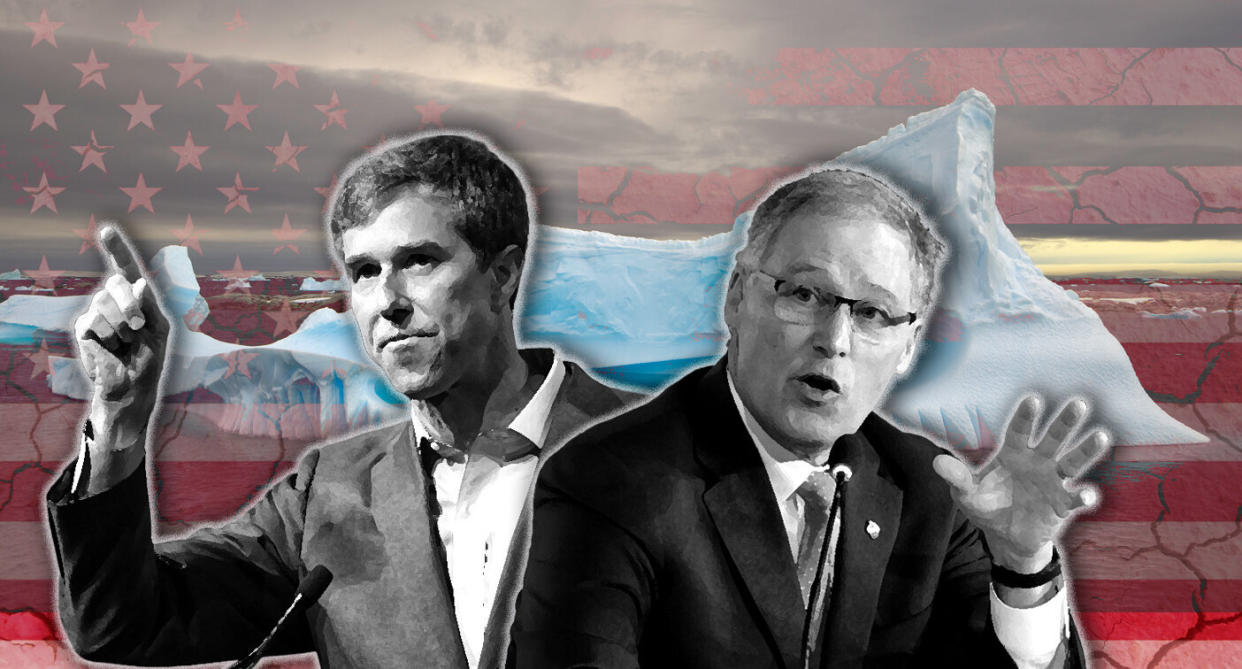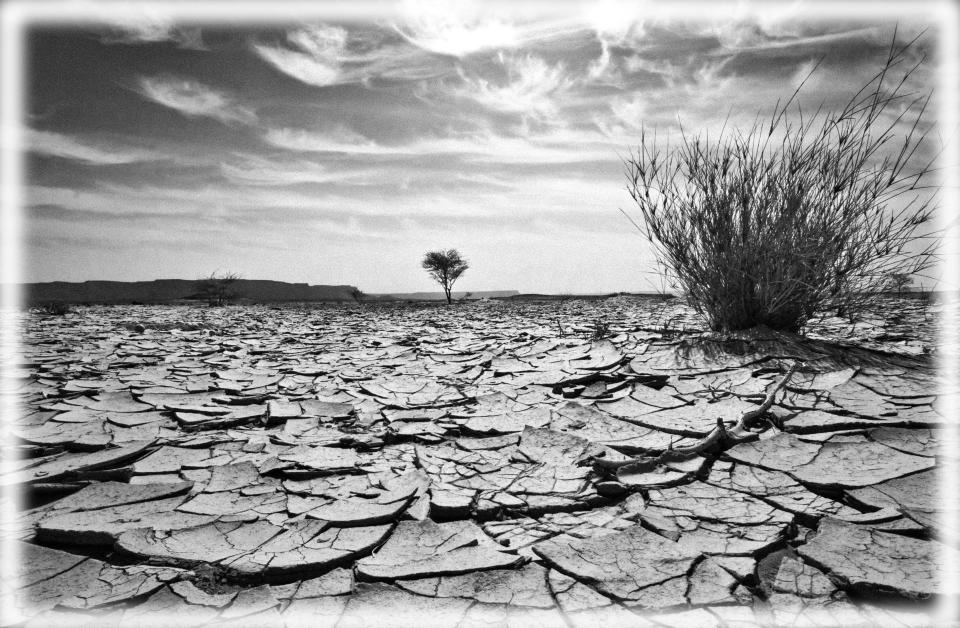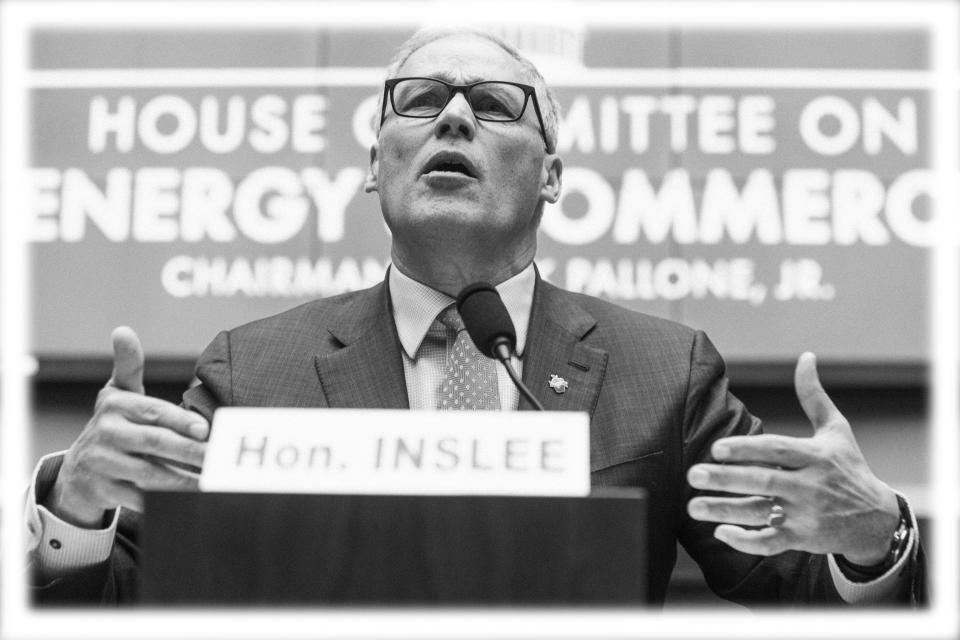Candidates begin rolling out their climate plans

Presidential elections are decided by many things: media exposure, financial backing, personal chemistry, timing and luck. Policy positions often are just a way of signaling where a candidate stands on the political spectrum. But 2020 is shaping up to be different, the most ideas-driven election in recent American history. On the Democratic side, a robust debate about inequality has given rise to ambitious proposals to redress the imbalance in Americans’ economic situations. Candidates are churning out positions on banking regulation, antitrust law and the future effects of artificial intelligence. The Green New Deal is spurring debate on the crucial issue of climate change, which could also play a role in a possible Republican challenge to Donald Trump.
Yahoo News will be examining these and other policy questions in “The Ideas Election” — a series of articles on how candidates are defining and addressing the most important issues facing the United States as it prepares to enter a new decade.

If not all Americans can agree on the causes of climate change, at least they’re starting to agree that the weather is getting weird. The connection of climate change to day-to-day weather is often misunderstood (remember Sen. James Inhofe throwing a snowball in the Capitol to attempt to disprove global warming?), but scientists say extreme weather and record-breaking wildfires are linked to the warming planet. These events, coupled with a series of recent blockbuster reports on the impacts of climate change, have injected new urgency into the issue, and a majority of Americans throughout the country now favor more government action to mitigate climate change.
The landmark report of Intergovernmental Panel on Climate Change released in October 2018 concluded that the planet has already warmed 1 degree Celsius (1.8 degrees Fahrenheit) since the pre-industrial era. If the planet continues at the current pace, another half a degree of warming will occur by 2040. Past that point, experts predict multiple crises around the world — mass migrations from flooded coastlines; more droughts and wildfires; deadlier heat waves and hurricanes; food shortages and water rationing, accelerating species extinction, and the irreversible loss of entire ecosystems, including the world’s coral reefs.

Throughout the world, a rapid shift from fossil fuels, which provide nearly 80% of U.S. energy, is urgently needed. While China is now the world’s largest greenhouse gas emitter, for a long time, America’s thirst for oil meant it was responsible for most of the emissions that contributed to warming. Under President Trump, the U.S. is no longer taking the lead on reining in carbon emissions — the president has stated his intention to pull out of the Paris climate agreement, and is reversing Obama-era regulations. The unwillingness by Republicans to address climate change stands in the way of action to prevent catastrophe.

Historians point to 1986 as a watershed moment in the understanding of climate change. Experts testified at a Senate hearing on the effect of manmade pollution, saying that overwhelming evidence and research from NASA’s earth observations showed temperatures were on track to rise to levels “not seen in 100,000 years.” Protecting the environment has not always been a partisan issue. The Environmental Protection Agency was created by President Richard Nixon; it was Reagan who signed the Montreal Protocol to protect the ozone layer; and George H.W. Bush helped launched the first global framework to address climate change, saying at the time that “the United States fully intends to be the world’s preeminent leader in protecting the global environment.”

As politicians of both parties began working on solutions in the 1990s, the fossil fuel industry mounted a disinformation campaign to undermine climate science. It was so effective that by the time former Vice President Al Gore was promoting his climate change documentary “An Inconvenient Truth,” the country was deeply divided on the issue.

Jay Inslee and Beto O’Rourke are the first two Democratic presidential candidates in the 2020 election to describe their plan to address climate change. While they differ in some details, both are framed around an ambitious 10-year mobilization to get the nation to a net-zero carbon future. Environmentalists say the excitement generated by the Green New Deal, introduced by Rep. Alexandria Ocasio-Cortez and Sen. Edward J. Markey, has raised expectations for climate action, especially among Democratic voters. The plans being proposed are comprehensive and would transform the American economy.
“I think that the new baseline for ambitious climate policy has shifted dramatically in just the last six months,” says Derek Walker, vice president of U.S. climate at the Environmental Defense Fund. “Partially because of the new reports out there and partially because of the impact of the Green New Deal on the policy debate on both sides of the aisle.”
A target for bringing the U.S. to net-zero emissions by investing and incentivizing a massive shift to clean energy is part of both plans, but on slightly different timelines. “Net-zero emissions” refers to the point at which human activity is no longer increasing the concentration of carbon dioxide in the atmosphere. O’Rourke’s plan aims to accomplish this by 2050. Inslee has set an end date to reach net-zero carbon emissions in the U.S. by no later than 2045. Both say the U.S. needs to cut emissions by half by 2030, as advised by the IPCC report.

Inslee, the governor of Washington since 2013, has been advocating for climate action for decades and has presented the most detailed and encompassing climate plan thus far. His $9 trillion proposal (mobilizing government and private funds) would aim to create 8 million jobs, rebuild and upgrade the nation’s infrastructure to optimize energy efficiency, and use various market mechanisms to move the economy away from fossil fuels and toward 100 percent clean energy. Seventy percent of U.S. emissions currently come from electricity, transportation and buildings. Inslee would require electricity generation to be carbon neutral by 2035. It would mandate zero-emissions for most new vehicles produced, and all new commercial and residential buildings by 2030.
Trying to avoid global warming’s worst impacts is like steering the Titanic and Inslee’s plan requires all hands on deck — marshaling existing programs to move energy markets toward renewables, an upfront government outlay of $3 trillion to spur trillions more in private investment, and a revolution in auto and building production. He calls it the “Evergreen Economy.”
Envisioning $300 billion in annual government spending in the first ten years, Inslee predicts incentives will generate an additional $600 billion in matching private sector investment that would fund renewable energy and other infrastructure projects, such as municipal water systems. He also proposes providing job training to displaced coal industry workers and would guarantee health insurance and pension benefits for them.
Against the backdrop of Yosemite National Park, former Rep. Beto O’Rourke called climate change “the greatest threat we face — one which will test our country, our democracy and every single one of us.” At its heart, his $5 trillion dollar plan is a massive economic stimulus intended to spur innovation in the private sector, while building new public infrastructure toward a zero-carbon future. It would require an initial $1.5 trillion investment that O’Rourke says would be leveraged to mobilize $5 trillion in public and private capital for everything from research and development to tax credits for clean energy innovators. He proposes that this outlay would be funded by ending subsidies to fossil fuel companies and changing the tax code — specifically, raising rates on corporations and the wealthy.
A linchpin of O’Rourke’s plan is getting Congress to pass a “legally enforceable standard” that will send a clear market signal. The plan is vague about what this standard is, but O’Rourke has hinted at some form of carbon pricing, which could be a tax.

To illustrate how hard it is to pass legislation on climate change in the United States, consider that the Democrats couldn’t pass a version of a “cap and trade” bill — originally devised as a free-market approach that would appeal to conservatives — in 2009, when they had control of Congress and President Obama was in the White House. The bill had its predictable critics in the oil and gas industry and among Republicans who opposed it on ideological grounds, but it was also attacked on the left by environmentalists who said it didn’t go far enough. The bill passed the House, but was never taken up by the full Senate.
Even before former Vice President Joe Biden announced a formal climate change policy, the left wing of the Democratic Party was decrying him for what an adviser called his “middle ground” approach to climate change. Ocasio-Cortez told a gathering of Green New Deal supporters, “I’ll be damned if the same politicians who refused to act then are going to try to come back today and say, ‘We need a middle-of-the-road approach to save our lives.’” Biden now says he will take a strong stand on the issue. As a senator he successfully pressed for formation of a climate change task force, approved by Reagan.
The portfolio of climate initiatives that Inslee and O’Rourke have presented would target greenhouse gases across the economy, require large federal appropriations and probably would include some form of carbon tax, a daunting task for even the most skilled politician. Foreseeing an uphill battle, Inslee is calling for an end to the filibuster and the Electoral College to give his climate agenda a chance.

“No candidate has put forward a plan that would be adopted in toto, and put into law,” says Walker. “The key thing is that all the candidates that have talked about climate are putting ideas and themes and momentum into the bloodstream of the American electorate and the media.”
Polls show voters, particularly young people, increasingly want the government to act on the issue. A recent survey commissioned by the EDF and conducted by Global Strategy Group found voters in battleground states overwhelmingly support strong action on climate change. Among Democrats, climate change is now a top issue that could swing the primaries. A Monmouth University poll which surveyed Iowa voters found climate change is the second issue after health care that Democratic voters are thinking about when choosing a candidate.
Even many Republican voters support action on climate change, and former Massachusetts Gov. Bill Weld, who is challenging President Trump for the Republican nomination, has said the Trump administration’s handling of the issue is “antithetical to every principle of conservation and conservatism, and every tenet of Theodore Roosevelt’s Grand Old Party.”
_____
Read more from Yahoo News:




